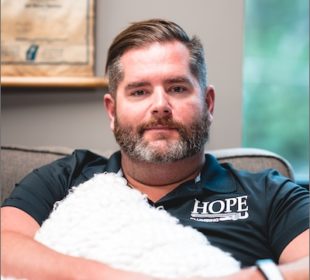For something that’s pretty formless, it’s hard to wrap your mind around water being “hard,” but water hardness is a thing and, while inconvenient, is easily fixed.
What is hard water?
Simply put, hard water is water with a high concentration of minerals. These minerals are usually fine for consumption but can cause problems with your plumbing down the road.
How do I know if I have hard water?
If you notice a white film on your shower door, if your glasses come out of the dishwasher with a similar film, and/or if you notice that soap and shampoo don’t lather as well as they should, you probably have hard water. When in doubt, call Hope Plumbing. We can come out and test the water with one of our kits and give you a definitive answer.
How bad is hard water?
Generally speaking, hard water isn’t a big problem unless it’s exceptionally hard or has had a long time to build up, such as in an older home. This mineral buildup is called “scale” and can range from being a nuisance – it can be difficult to scrub off that film from your shower and frustrating when your glasses always look dirty – to becoming a problem if scale builds up in your pipes. But before you freak out…
How can I fix hard water?
Hard water is very easy to treat with a – wait for it – water softener. As much as we’d love to tell you that you can install one yourself, this is one of those things that require a licensed plumber. Even if you have an existing system, additional piping may be required. The installation of a water softener can take anywhere between an hour and a day depending on your specific needs.
General maintenance is easy. For the most part, all you need to do is make sure there’s always salt (frequency of replacement varies by model.) The brand we typically recommend is Marlo. We’ve found that water softeners are one of those “you get what you pay for” types of products, so we work hard to make sure we’re offering a reasonably priced but highly effective product.
Do I need a water softener?
That’s a question only you can answer, but if you suffer from hard water, we highly recommend a water softener. You might be used to scrubbing that nasty white film off of your shower walls, faucets, and dishware, and that’s cool, but there’s not a whole lot you can do about scale buildup in pipes which can result in clogs and other costly inconveniences.
Some more topical benefit to owning a water softener is that owners report having to use less shampoo since it requires a smaller quantity to work up a good lather. If you’re buying shampoo less frequently, you could spring for that expensive salon-brand stuff that your hair stylist has been peer pressuring you about. Also, you can stop buying those massive jugs of shampoo from Costco that make it look like you’re preparing for nuclear fallout.
Additionally, soft water is much gentler on dry skin (the change in the “feel” of the water is one of the top reasons why customers purchase one), it doesn’t produce that film, so you don’t have to buy cleaning products as often, and you won’t have to worry about that nervous look people give you when you hand them a cloudy wine glass.
So, there’s your quick guide to water softeners. Indianapolis and surrounding areas (Brownsburg, Avon, Carmel, Fishers, etc.) tend to have hard water, so we get these questions a lot. As always, we’re around to answer any other questions you have, and we’d be happy to tell you more about the products we carry, and which one will work best for you.
